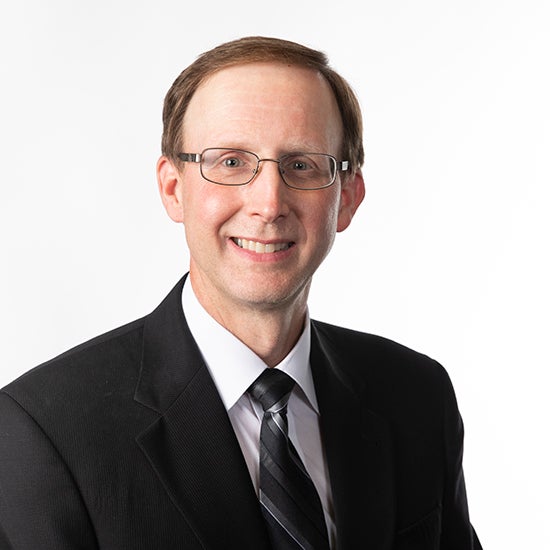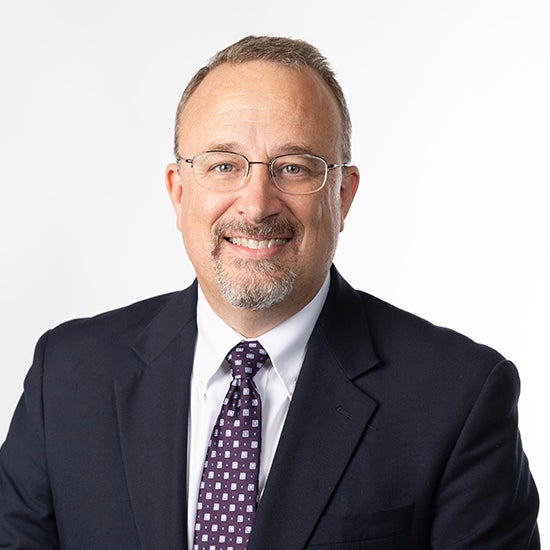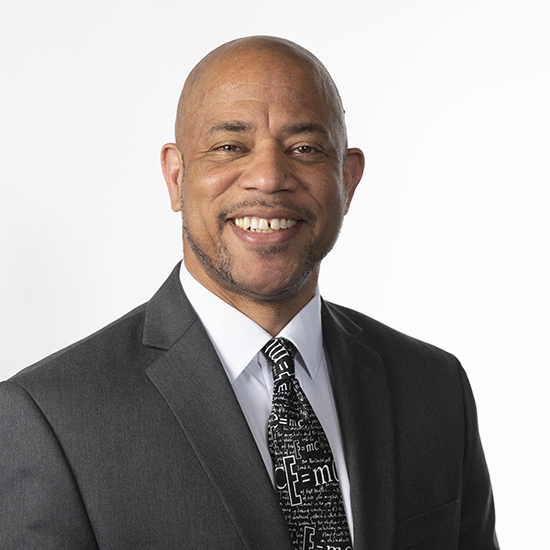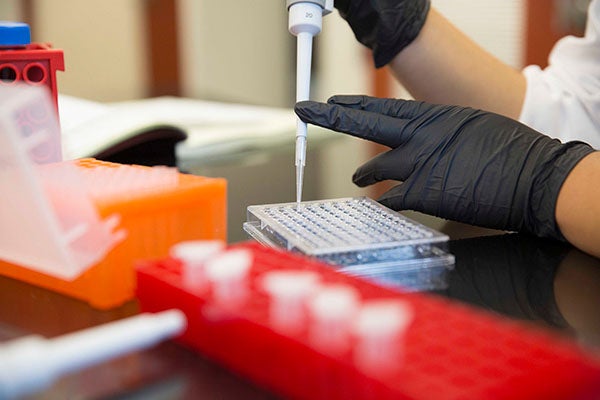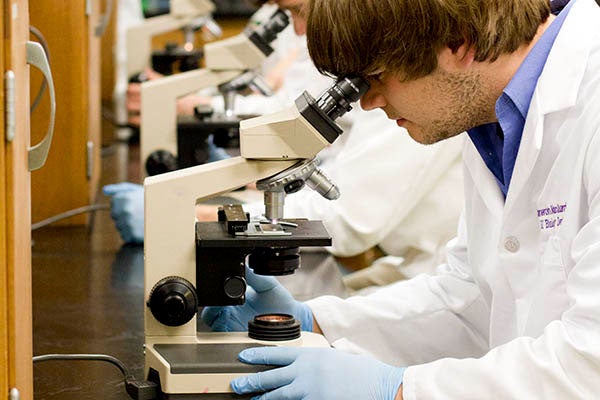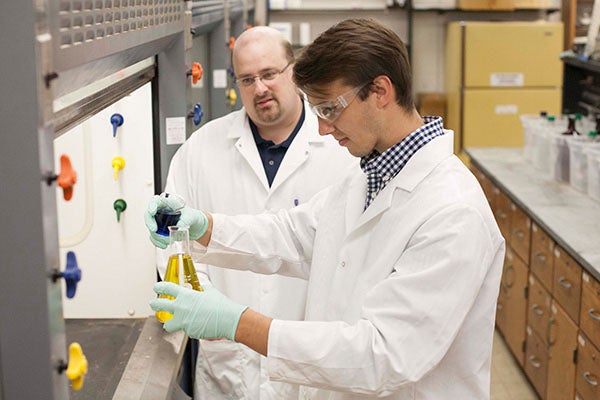Program Overview
As you plan a career in medicine, biophysics or medical physics, it's essential to have a firm foundation in physics, chemistry and biology. As medicine and biology advance, so does physics. So let us prepare you with chances to join in research and laboratory opportunities alongside of our seasoned faculty. Learn how to apply the laws of motion and energy to living systems. And we'll make sure that the groundwork laid will nurture your faith. You'll discover a close-knit community where lifetime relationships take root.
Our Faculty
Career Paths
Biomedical Engineers
Biomedical engineers combine engineering principles with medical sciences to design and create equipment, devices, computer systems, and software used in healthcare.
Medical Scientists
Medical scientists conduct research aimed at improving overall human health. They often use clinical trials and other investigative methods to reach their findings.
Biochemists and Biophysicists
Biochemists and biophysicists study the chemical and physical principles of living things and of biological processes, such as cell development, growth, heredity, and disease.

